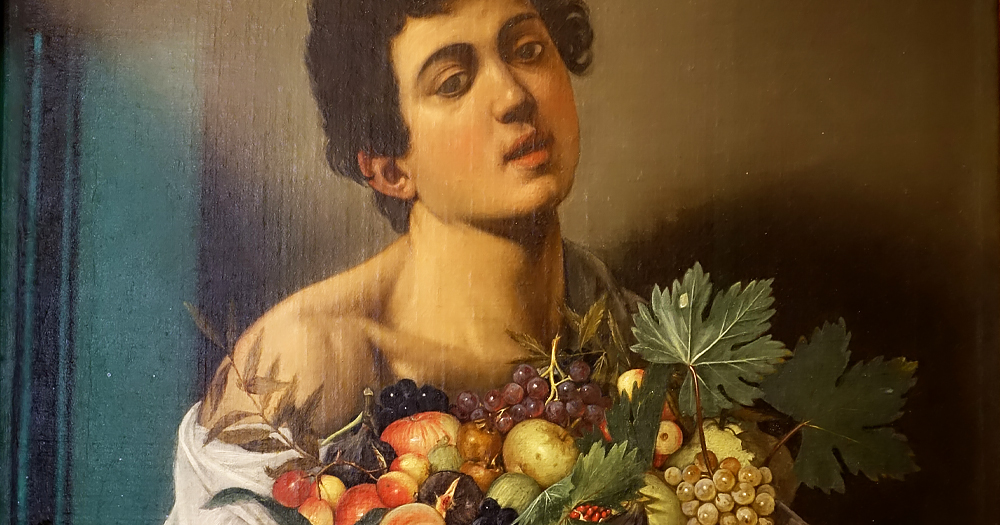In the past, “Fruity” was known to be a pejorative word used to describe soft, effeminate men. This may come as a surprise to those who use the word today to indicate that you or someone else is a member of the LGBTQ+ community.
“Fruity” was a slur that was thrown at gay men for decades until they decided to reclaim the term. If you think about it, queer used to have negative connotations attached to it too, and now, depending on your comfort, it can be an empowering way to describe yourself.
LGBTQ+ culture often holds a fascinating history, and linguistic enthusiasts may be interested to know where the word “fruity” came from in the first place. According to the experts, the insult “fruit” is known for having roots in the British cant slang ‘Polari’. The slang was conceived out of the West and East ends of London throughout the 19th Century and was mainly used by social outcasts and outsiders.
Feeling a little #fruity ?? remember to spill the tea and slayyy today ??️? pic.twitter.com/2TBfyY1vVV
— Cosmo's 2021 new years celebrity (fart punk) (@bigboycosmo) April 7, 2022
This slang could be heard amongst the vagrants, sailors, circus folks and theatre folks to name a few. Polari was used as a secret language for these outsiders to “protect their identities or actions”.
It wasn’t long after this that Britain’s gay community adopted this new idea for communicating, transforming it into a “vehicle for campery, bitchiness, filthy jokes, and innuendo”. The word “fruit” was just one of many slang words that gay men would use to make fun of each other’s effeminacy.
“Fruit” is however an unusual word to use. Mayukh Sen explains in a piece for Food52, “A fruit, susceptible to the whims of nature, tends to grow tender and soft. For a man to embody these very traits, a sensitivity to the elements that are typically coded female goes against the imaginings of masculinity our culture worships.”
Sen later reveals that when the slur eventually made its way to America in the 20th Century, it had become tied to a new word: fruitcake.
Its funny because I'm real allergic to fruit. #Fruity #Gay #TikTok https://t.co/sdyVAdGEt6
— Sara Mayfield (She/Her) ? (@SaraMcCupcakes) April 9, 2022
The phrase “you’re as nutty as a fruitcake” was used to describe people who had lost their marbles, had gone off their rocker, or, bluntly put, people who were seen to be crazy.
At the time, homosexuality was considered to be a mental illness and could only be corrected through horrific procedures which included lobotomies, electroshock treatment, and chemical castration.
This is eventually how fruits became fruitcakes, and the psychiatric institutions where these sickening procedures took place were called “fruitcake factories”. Over time, “fruit” and “fruitcake” became verbal weapons that heterosexual people could use to remind queers that they were unacceptably different.
Keith Wildhaber, a gay police SGT in St. Louis, recently was awarded nearly 20 million in a discrimination lawsuit because he claimed he was asked by his department to “Tone down his gayness”! Now, he has been promoted to lead a new police “Inclusion unit”! It pays to be gay! ? pic.twitter.com/Qnfbz0lWzM
— Shawnasaurus Rex (@ShawnG927) December 14, 2019
There have been instances where the word has been used as an insult for example a gay cop in Missouri had “fruity” thrown at him negatively in 2019.
But what does it mean to be called “fruity” today? It is mostly a word used to describe someone who is a member of the LGBTQ+ community, but without the negative connotations. The word is immensely popular on TikTok, where Gen Z users and others have reclaimed the term with positivity, and own the word proudly.
While this is of course celebrated within the LGBTQ+ community, it is always valuable to know our history, and understand the struggles those before us went through to allow us to arrive at this destination today.
© 2022 GCN (Gay Community News). All rights reserved.
Support GCN
GCN is a free, vital resource for Ireland’s LGBTQ+ community since 1988.
GCN is a trading name of National LGBT Federation CLG, a registered charity - Charity Number: 20034580.
GCN relies on the generous support of the community and allies to sustain the crucial work that we do. Producing GCN is costly, and, in an industry which has been hugely impacted by rising costs, we need your support to help sustain and grow this vital resource.
Supporting GCN for as little as €1.99 per month will help us continue our work as Ireland’s free, independent LGBTQ+ media.
